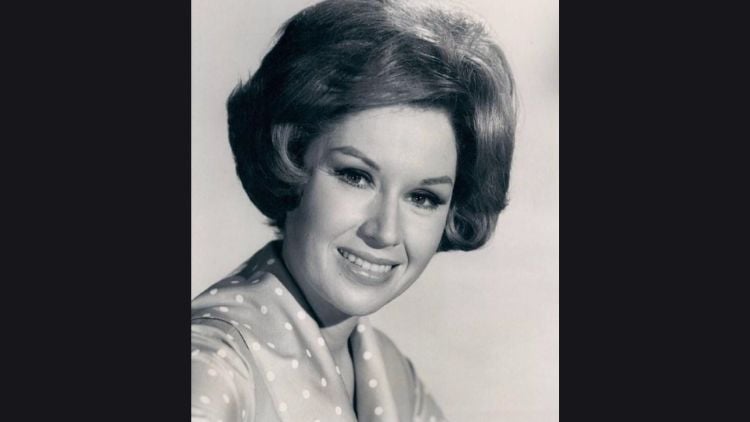Patricia Crowley was an actress who was best known for her roles in the TV series “Dynasty” and the 1960s sitcom “Please Don’t Eat the Daisies,” but she has also acted in numerous other TV shows and movies including “Hawaii 5-0,” “Columbo,” “Generations,” “Port Charles,” and “The Bold and the Beautiful.” She also received the Golden Globe new star award in 1954 for her roles in “Forever Female” and “Money From Home.”
The New York Post reports that on Sunday September 14, 2025, just two days before her 92nd birthday, Crowley died of natural causes in Los Angeles. Her son, Jon Hookstratten, who serves as the executive VP of administration and operations for Sony Pictures Entertainment, announced the sad news of his mom’s death.
Crowley is survived by her husband, Andy Friendly. They had been married since 1986, but that wasn’t her first marriage. She was previously married to Ed Hookstratten. The couple had two children together, Jon and Ann Hookstratten Osher.
Crowley’s acting career began when she followed her sister,singer Ann Crowley, to New York City, where she landed a role in the chorus of “Oklahoma!” on Broadway. While attending the High School of Performing Arts, she stared as the lead in the Broadway show “Southern Exposure.” Then she went on to land a role in a live episode of CBS’ “The Ford Theatre Hour” opposite Jack Lemmon and Jack Albertson.
While Crowley has acted in numerous TV shows and movies in her long career, it has been awhile since she has been seen on screen. Her last onscreen role was in the 2012 in the film “Mont Reve.”
Crowley is survived by her husband, her children, five grandchildren and four great-grandchildren.
Watch the video below to see Crowley perform with Dean Martin on The Dean Martin Show in 1970.
